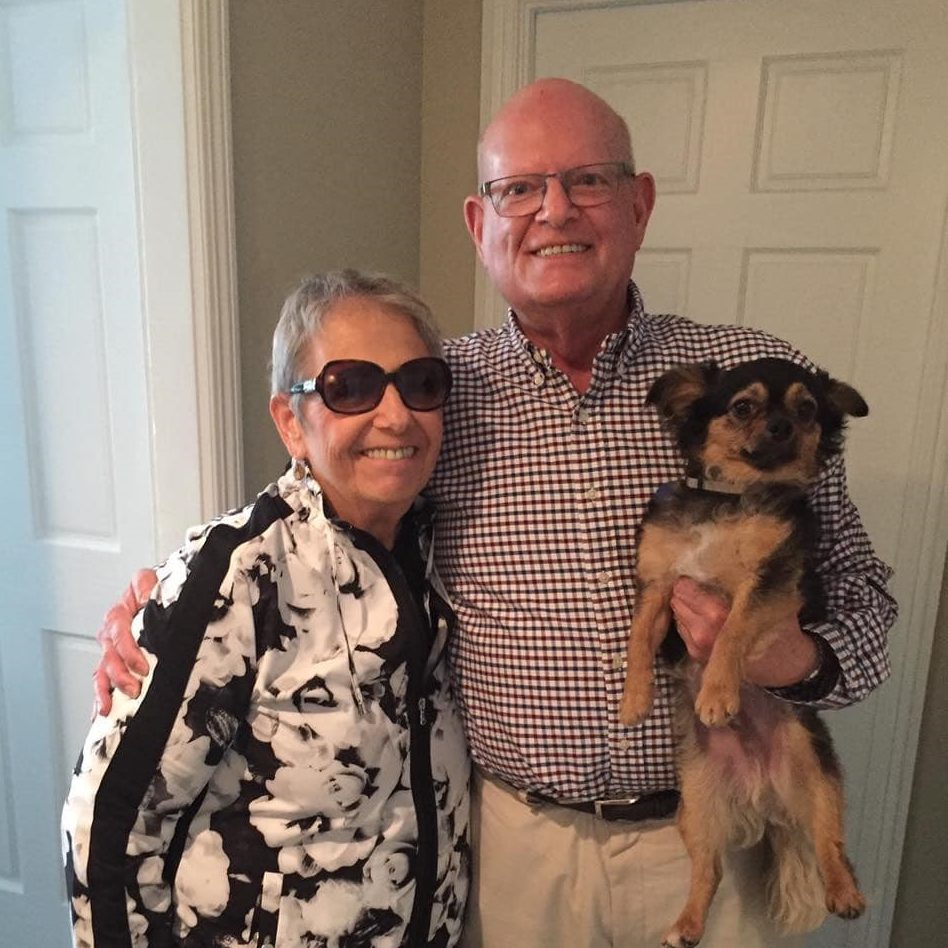[vc_single_image source=”featured_image” img_size=”full”]
“Most of the characters in the Torah could have been residents at Beit T’Shuvah,” Rabbi Joel Levine tells me with a grin. A rabbi now four years into his retirement, Rabbi Joel has been a lifelong student of the Torah and finds the flaws in the biblical characters something to inspire the residents of Beit T’Shuvah. He is a volunteer here on Tuesdays and Fridays and if you don’t already know him, you might recognize him from his wide gregarious smile as he hangs around the coffee bar and counseling office. His kind eyes, empathetic charm and curious nature make him a favorite among residents. Everyone loves Rabbi Joel.
Rabbi Joel grew up in Queens, New York until he was 18 years old. From there he studied history at the University of Michigan and then attended Hebrew Union College – Jewish Institute of Religion in Cincinnati. While on his spiritual path, he befriended Rabbi Neil Borovitz, who, many years later would connect Rabbi Joel to his brother, Rabbi Mark.
Rabbi Joel was ordained in 1973. He interned in Seattle, WA for some time but eventually moved to Florida where he became the founding rabbi of Temple Judea in Palm Beach Gardens, where he presided as rabbi for 34 years. The congregation he started counts more than 750 families as members, and it is still growing. On top of that, it was here, working at the synagogue, where he met his wife of 38 years, Susan. “Susan is a gift to me. She’s so incredibly special,” he says with a smile.
Susan and Rabbi Joel retired in Los Angeles in 2015 so that they could be closer to their daughter. Being in a city like LA also provided them ample opportunities for volunteer work, something both Susan and Rabbi Joel are extremely passionate about. Having heard of Beit T’Shuvah through Neil, Rabbi Joel met with Rabbi Mark and Rabbi Matt Shapiro. They all agreed he would be a great fit, and Rabbi Joel began volunteering twice a week. Four years later, he is still here going strong.
Rabbi Joel has a soft spot for and a deep understanding of addicts, as his father was a gambler. “He never stopped until the very end when he got Alzheimers. It was terrible. I was wounded a lot as a child because of his absence,” he recalls. But through this ordeal, he found Al-Anon. He explains that finding Al-Anon was a gift—a silver lining that “helped more than therapy.” Rabbi Joel’s close-to-home history with gambling has motivated him to lead gambling groups at BTS. “I see how powerful that addiction is, from my own experience and from the residents,” he says.
On Tuesdays, Rabbi Joel is here as a spiritual counselor for the residents. On Fridays, he sits in on t’shuvah group with Rabbi Micha’el. When he’s not counseling or sitting in on groups, he is training. An avid student and curious soul, Joel learns more about addiction through texts and discussions on how to better help those who find themselves in the halls of BTS.
One of the things Joel loves the most about BTS is seeing the growth in residents. “When I came here four years ago, Cantor Nate was a resident and now he’s a cantorial soloist. It’s truly amazing,” he says with genuine delight. He leans back and grins, “I get a lot out of being a Spiritual Counselor. I love to learn, but more than that, when I see a behavioral change in my clients, it’s remarkable. To see someone grow into a positive and hopeful human being is heartwarming and powerful.”
Rabbi Joel has been fortunate with his clients. Most of them have done well and are living lives of active recovery. He is familiar with the difficulty of recovery but chooses to see the positive in the entirety of the process. As part of his own process, Rabbi Joel uses his love of Torah to approach his clients. “I take the Torah portion form the week and find something in it I can bring to my clients. The Torah is a marvelous way to help someone lead their life because every character in the Torah is flawed,” he explains. In particular, Rabbi Joel likes to look at the story of Joseph as a successful model of recovery. “He was self-centered and spoiled as a young man, and he was transformed through pain. From a snake pit and prison, he transformed into a mensch. He was tested along the way just like the residents here.”
When he’s not here, you can find Joel teaching Torah at Sinai Temple. He and Susan are active at Temple Emanuel in Beverly Hills as well as members of Temple Isaiah. They are also very engaged in Chai Village LA—a group dedicated to making retirement an exciting new chapter in one’s life. Rabbi Joel explains, “a lot of people in retirement don’t do anything. It can be lonely. But between Beit T’Shuvah, Sinai Temple, Temple Emanuel, Temple Isaiah and Chai Village, I keep pretty busy. Oh and Susan and I play bridge twice a week,” he laughs, “I’m not very good, but I’m learning.” And Rabbi Joel loves to learn.
